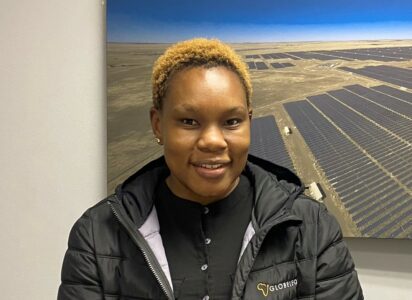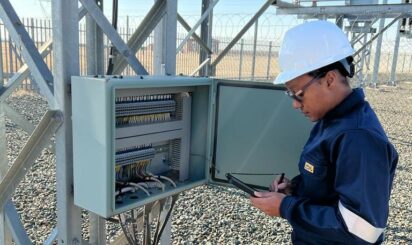
Lenah Mabusela is a Power Engineer at Globeleq, an international power company. Having grown up in a township, she chose engineering because it was considered a stable career. A bursary from ESKOM, South Africa’s state-owned electricity utility, enabled her to study Electrical Engineering.
At the time she graduated from university, ESKOM put a halt on renewables because they were not considered economically feasible – a situation very different from today. So Lenah worked at a petrochemical plant in Mpumalanga for a while, where she was tasked with optimizing operations. She lived in a small town close to the plant, surrounded mostly by men – at times, it was a rather harsh environment to work and live in. The situation is better at her current employer. At Globeleq, more and more women hold senior positions, even in technical fields.
Proving your competence
Lenah remembers many occasions when she was treated differently because she is a woman. Her requests were ignored, and as a consequence, her work was delayed. But she feels she can’t complain. And she can’t make mistakes at work, because it will be blamed on her gender. Which is problematic: “Mistakes happen. You will never do anything worthwhile if you always avoid making mistakes.”
In her experience, even if women have the same qualification as their male peers, they still always need to prove their competence. After an incident where some of her male colleagues behaved very unprofessionally, raising their voices at her, she says she was done being nice. But she remained professional. “You can never be out of character. You always have to be the bigger person.” It can be exhausting at times, but Lenah says there are also positive examples. “Most of the seniors are male, and you need their support. Some are very professional, and that’s all you need. You don’t need anybody to hold your hand.”
Having to choose

Like many women, Lenah felt like she had to choose between family and a career. She says women are still expected to care for children and do the housework on top of their paid job. “Men can have a career and a family without compromising. A woman has to sacrifice one, to some extent.” She believes that job security would improve the situation for women a lot. But as long as it’s women who stay home with the kids, they will always have a disadvantage compared to their male colleagues because they can’t progress at work. We still have a long way to go in terms of equality, Lenah says, but she is hopeful: the environment is changing. More and more women are entering the power sector, though they are not always given the tasks they should be given. “The industry needs to understand that women are extremely capable. That they do a lot with little resources. And girls need to understand that, too.”
This article is the summary of an interview, conducted in the course of our research on opportunities and barriers for women in the power sector in South Africa.
